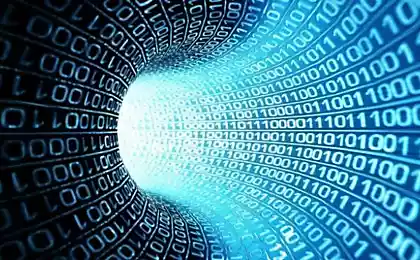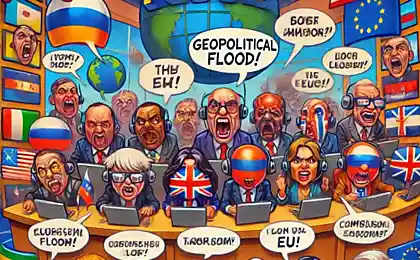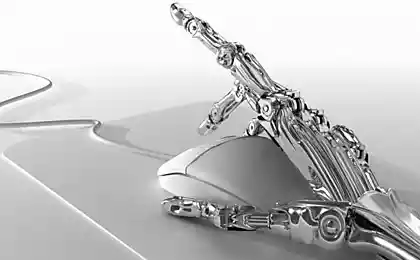242
Quantum leap: how a new computer will change our lives by 2030

Introduction. Many have heard about the incredible potential of quantum technologies, which can speed up computational processes several times and transport us to a whole new era of information systems. But what does all this mean in practice? How? quantum Will it affect health care, the economy and even the lifestyle habits of all of us by 2030? To answer these questions, we had a conversation with leading physicists and specialists in quantum computing, and also tried to connect their views with national projects of Russia and the forecasts of UN 812.
In this article, we have combined expert opinions, scientific facts and analytical calculations, allowing us to see how in the coming decades the concept of “quantum leap” will become one of the most relevant topics in the world scientific and technological agenda. Much of our conversation revolved around how quantum computers can improve the lives of not only high-tech industries, but also the world of computing. simplerFar from the subtleties of quantum physics.
Conversation with scientists: from theory to practical application
To begin with, we turned to Dr. Ivan Sokolov, a senior researcher at one of the leading Russian institutes working in the field. quantum computing. He talked about how important it is to understand that classical computers, no matter how powerful they are, cannot handle some complex tasks in a reasonable amount of time. “The main strength of quantum systems,” Sokolov notes, “is their ability to be in a state of superposition, which gives them the power to do so.” exponential gain in computing power.”
We also talked with Professor Anna Makarova, who participated in one of the national projects of Russiarelated to the development of quantum technologies. According to her, the main areas where Russia sees rapid progress are secure communication, modeling of complex chemical reactions and artificial intelligence. “We set ourselves the task not only to catch up with other countries, but also to offer our own technological solutions,” Makarova said. In the next few years, it is planned to increase funding for quantum research and integrate it with industrial development programs.

What do you think about quantum technology at the UN?
Globally, interest in quantum computing has grown so much that United Nations In its 2030 Outlook (Project 812), it sees quantum infrastructure as a priority element of the technological future. Among the goals of the organization is to provide the world community with algorithms for increased crypto-resilience and optimization solutions for energy and logistics, which will become available due to the development of the new system. quantum computing.
Interestingly, UN experts note the possible social consequences of the development of this industry. We are talking about additional jobs in the high-tech sector, as well as the need refresher A generation of professionals. At the same time, the transition to quantum solutions implies risk First of all, the restructuring of cybersecurity systems.
Three key areas that will change by 2030
- Medicine and pharmaceuticals. Quantum computers will help to model the structures of complex molecules faster, which will accelerate the discovery of new drugs and personalized therapies.
- Logistics and transport. The tasks of route optimization, demand forecasting and resource allocation will be solved many times more efficiently.
- Encryption and data security. Classic cryptographic protocols will give way to post-quantum methods that provide a tremendous level of information security.
How will quantum computers affect the lives of ordinary people?
For many people, questions about global research seem abstract. However, Dr. Sokolov emphasizes that such technologies will affect the routine: accelerated processing banking systems to more accurate weather and climate forecasts. For example, due to qualitatively new calculations, it will be possible to predict the trajectory of hurricanes and minimize damage, as well as improve the work of rescue services.
In addition, Professor Makarova suggests that consumer electronics may appear quantum accelerators on narrow tasks, for example, to encrypt Internet traffic in real time. If today’s passwords and bank protection systems seem reliable, the development of quantum computing will force the whole world to move to more secure ways of communicating and storing data.

Compliance with national projects and the future of Russia
Russia is actively involved in the quantum technology race. Under the auspices of the national projects “Digital Economy” and “Science”, the creation of quantum centers in various regions, research, and the formation of human resources are supported. Collaborations with international universities, private investors and government agencies play an important role.
“If we are talking about the prospects for 2030,” says Dr. Sokolov, “we see a real opportunity to launch the project.” applied quantum computers for the tasks of specific industries: petrochemistry, metallurgy, electricity. This is not just theoretical calculations: quantum prototypes are already being tested, where, for example, in chemical modeling, it is possible to achieve colossal accuracy of calculations that is not available to classical supercomputers.
Forecasts and challenges
However, any breakthrough Technology carries risks. First of all, there is the problem of the scalability of quantum systems and their cost. Maintaining ultra-low temperatures and fine-tuning quantum circuit boards remain extremely challenging. There is also the question of how quickly states can move to postquantum standards encryption, because all modern information security can be threatened.
In terms of global cooperation, experts United Nations They point to the need to develop international agreements to secure critical infrastructures and prevent technological conflicts when quantum advances become a tool for cyberattacks.
Conclusion
Many aspects of quantum computing are still on the verge of scientific hypotheses and technical experiments. Nevertheless, according to our interlocutors, Dr. Sokolov and Professor Makarova, a real revolution is inevitable. Investments in quantum technologies are already forming the foundation for a future where ultrafast computing power will become the norm and the IT industry will survive. transformation comparable to what the Internet produced in the late twentieth century.
But with every great discovery comes not only progress, but also new responsibilities. The harmonious development of quantum systems will require strategic approaches, government and industry participation, and the training of specialists capable of working with these complex technologies. Russia, according to its national projects, aspires to become a prominent player in this field, and the world community, represented by UN 812, offers its vision of the global agenda, in which quantum computing will take a special place.
As a result, by 2030, we could be in a world where the accuracy of medical research, the security of digital transactions and the efficiency of industrial processes will depend on the quantum leap. And it seems that this day is closer than many of us thought a couple of years ago.
Glossary
Quantum computing
A data processing system based on the principles of quantum mechanics, particularly the phenomenon of superposition and entanglement.
Superposition
The ability of a quantum particle to be in several states at once until the moment of measurement, which gives an exponential increase in computing power.
Post-quantum cryptography
Encryption methods designed to address potential threats from quantum computers.
Scalability
The ability to increase the number of qubits or computational elements without exponential growth of errors and complexities.
National projects
Major state-level initiatives aimed at developing priority areas (education, science, technology, etc.) with support for funding and coordination.
Book vs. Screen: Neurobiology of information consumption
The story of loneliness: how to live alone and not go crazy























